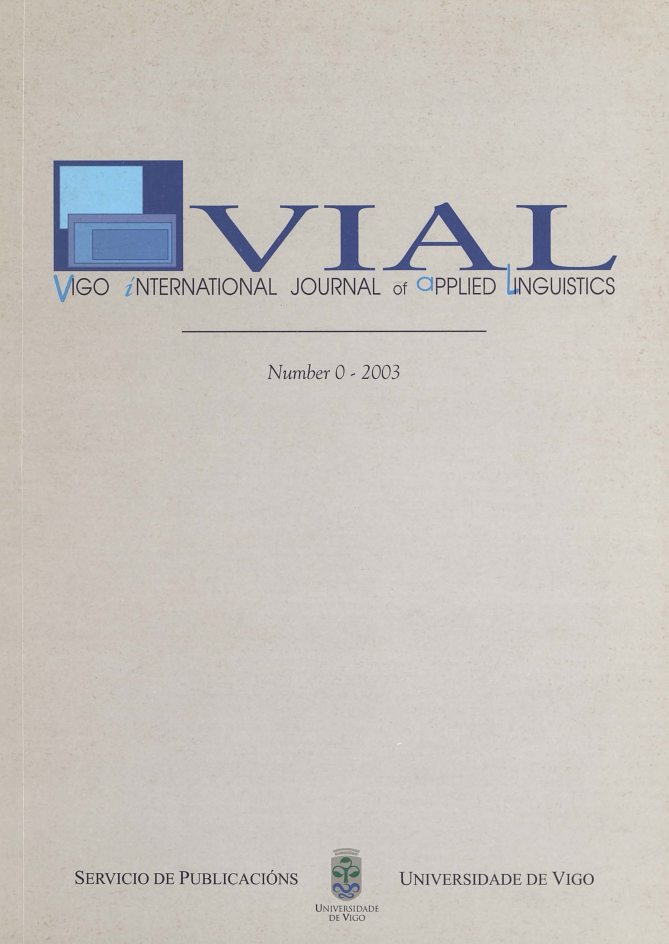The Pragmatic Rhetorical Strategy of Hedging in Academic Writing
DOI:
https://doi.org/10.35869/vial.v0i0.3867Abstract
In academic discourse, hedging is a crucial rhetorical strategy mainly used by writers to mitigate the argumentative force of knowledge claims in order to reduce the potential threat that new claims make on other researchers, and thus minimise possible criticism from peers (Myers, 1989). In the social interactions between writers and readers, hedges also represent a useful linguistic device used by writers to gain community acceptance for a contribution to disciplinary knowledge (Hyland, 1996, 1998). In this paper, I review the concept of hedge since its origins, and attempt to explore its main pragmatic functions in academic discourse. I finally. provide a taxonomy of the most frequent linguistic strategies which writers use in English research articles with the function of hedging, namely indetermination, camouflage, subjectivisation and depersonalisation.
Downloads
Downloads
Published
Issue
Section
License
Revistas_UVigo es el portal de publicación en acceso abierto de las revistas de la Universidade de Vigo. La puesta a disposición y comunicación pública de las obras en el portal se efectúa bajo licencias Creative Commons (CC).
Para cuestiones de responsabilidades, propiedad intelectual y protección de datos consulte el aviso legal de la Universidade de Vigo.



